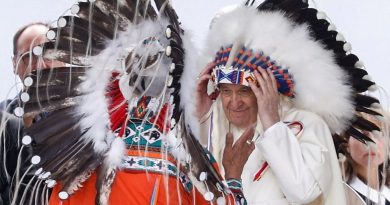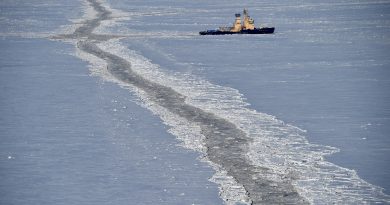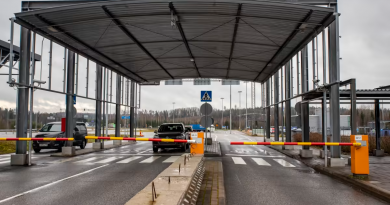Q&A: What’s at stake for the Arctic at COP21?
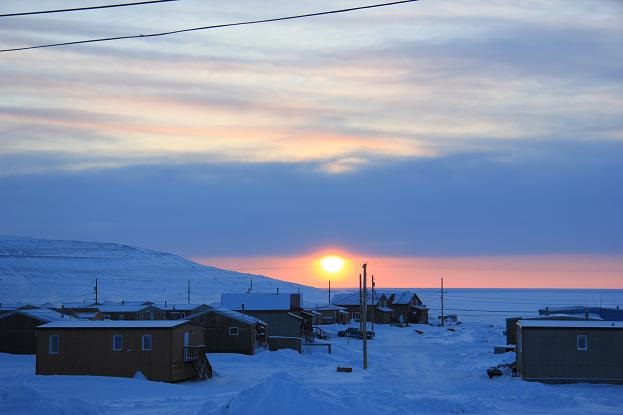
All eyes are on the United Nations climate change conference (COP21) in Paris.
As part of our Eye on the Arctic coverage, we’ve been talking to northern indigenous leaders across Canada about the social and economic consequences of climate change that they’ve witnessed in their communities.
But how well are these issues typically addressed during international climate negotiations? What can we expect from circumpolar countries during COP21?
To help us better understand these issues, Eye on the Arctic spoke with Sébastien Duyck, a visiting researcher at the Arctic Centre’s Northern Institute for Environmental and Minority Law at Finland’s University of Lapland, and the author of a briefing paper looking at the role of the Arctic at COP21.
Eye on the Arctic: When it comes to international climate negotiations, you’ve found references to the Arctic largely absent. Tell us why that is.
Sébastien Duyck: The region is covered by the jurisdictions of eight countries, and in seven of those, the centres of power, where decisions are made about the priorities of the negotiations, are made far away from the Arctic Circle.
All the topics being discussed are really decided and shaped by these national-biased perspectives and priorities. It means the Arctic has not received the attention or visibility you’d expect compared to the amount of public knowledge about the importance of climate as a driver of Arctic change.
The fact that the Arctic is a symbol of vulnerability to climate change, and is unfortunately in the jurisdictions of large emitters, is probably also a reason it’s more difficult for the issue to get more prominence.
EOTA: How well have circumpolar countries done at past climate negotiations in addressing these issues?
Duyck: Some countries have never really highlighted climate impacts in their Arctic regions. Perhaps the country that has spoken the least about it is Russia. Other countries have highlighted to some extent Arctic impacts, for instance, in the national reports to the United Nations Framework Convention on Climate Change (UNFCCC). But in relation to negotiating positions articulated in Paris, or articulated in the past, the Arctic is almost systematically absent because it doesn’t relate explicitly to the decisions made in the negotiation process.
EOTA: Do you think it should it be?
Duyck: That’s a very interesting question. For example, in relation to what is expected from Paris: In the past we used to focus the discussion on adaptation in relation to developing countries. But now there’s a lot more discussion on adaptation as a universal effort. Maybe this will put additional emphasis on how the Arctic nations will support their communities in relation to adaptation.
Potentially, it will further regional cooperation to address Arctic-specific adaptation needs. This could be something that, while respecting the concept of national sovereignty, international climate negotiations could help promote climate policies that are more specific to the Arctic.
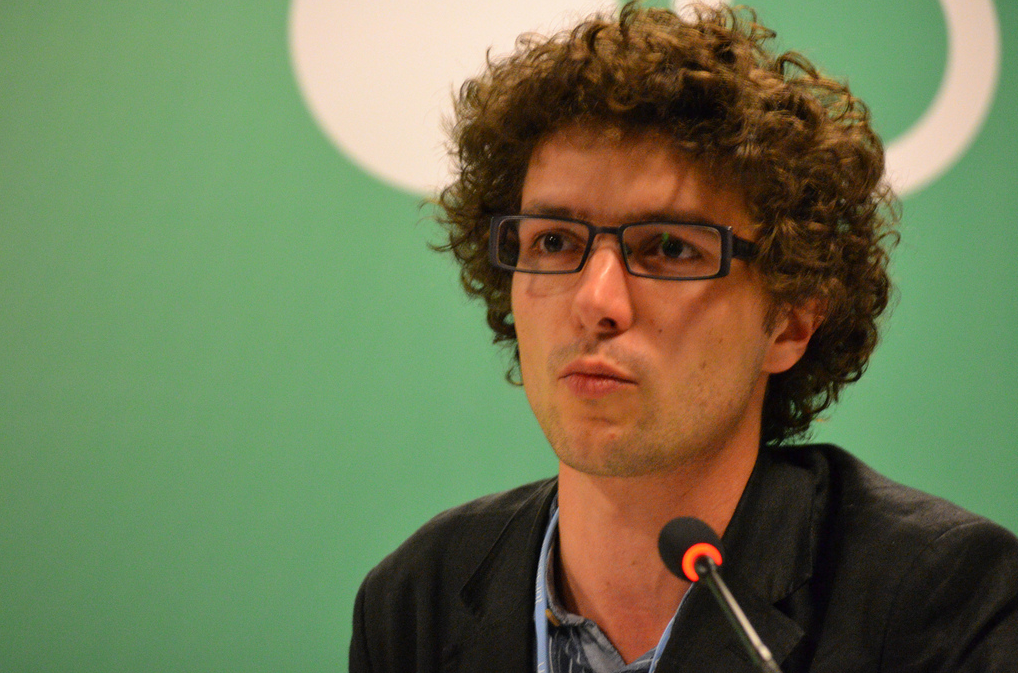
EOTA: What role have Arctic indigenous voices played in the runup to this conference?
Duyck: Arctic indigenous people, and indigenous people in general, are important as a moral voice to help access the level of ambition of different policies proposed by countries in climate negotiations. But their position is relatively weak in terms of the impacts they can have on the outcomes. Climate negotiations are often described as a state-driven process and Arctic indigenous people don’t have the same capacity to intervene as they do at, for example, the Arctic Council, which is a lot more open to listening to the views of Arctic indigenous people
EOTA: If an agreement is reached in Paris, how might it affect Arctic indigenous peoples?
I already mentioned strengthening of cooperation in relation to adaptation. In relation to economic development in the Arctic, the climate negotiations are clearly not going to prescribe specific policies that countries need to implement. The Paris agreement in no way is going to be explicit about what kind of activities should take place or should not be taking place in specific regions.
But what the Paris agreement could do is send a strong signal to investors that all governments agree that economies need to be put on a low-carbon development pathway and that fossil fuels need to be progressively phased out of the economy. If this is the case, it might affect the long-term prospects for some of the fossil fuel resources in parts of the world that are most difficult and most costly to access. That could potentially impact how fossil fuel resources will be exploited in the longterm in the Arctic, or whether they will be exploited at all.
EOTA: Does the world community put to much stock in international conferences like this when it comes to making a real impact on climate?
Duyck: This has changed over the last decades. During the Kyoto Protocol the focus was still on identifying the targets that countries should meet in order to prevent dangerous climate change. Now the focus has changed. In Paris, every country brings its own commitments. What the Paris agreement is supposed to do is promote trust and a better understanding of what other countries are doing: that all countries on earth are now taking this issue seriously and are at least implementing some climate policies.
Paris is all about setting a policy framework where industries, local governments and national governments have a better understanding of the long term pathway that all countries are aiming at.
EOTA: What will you be watching for in Paris?
Duyck: First, the issue of how social impacts of climate change and climate policies will be addressed in the Paris agreement. How human rights and food security, for instance, will be integrated into the Paris agreement. This is very directly relevant to the Arctic.
The second will be the long-term vision that governments decide to agree upon in Pars. This is a very open question at this stage whether governments will want to identify two degrees specifically in the legal agreements as the longterm target. This will be interesting not just in terms of the agreement itself but the message it sends to a lot of those actors, private actors and companies, whose actions are going to be crucial.
And third, the reporting mechanisms – they’re a lot more institutional and technical issues. But the stringency and ambition of those will be crucial to make sure that Paris provides a framework on which governments can catch up with the level of action that scientists are indicating is required to evade the most dangerous climate impacts.
The above interview has been edited and condensed.
Follow Sébastien Duyck`s tweets from COP21 @duycks
Write to Eilís Quinn at eilis.quinn(at)cbc.ca
Related stories from around the North:
Canada: COP21 – View from Nunavut, Canada, Eye on the Arctic
Finland: Finland at COP21: ‘Small steps will no longer do’, Yle News
Germany: Energy giant sued for climate change, Deutsche Welle
Greenland: Will COP21 turn down heat on Arctic?, Blog by Mia Bennett
Norway: Arctic residents in hot water, Deutsche Welle’s Iceblogger
Sweden: Swedish PM underlines importance of COP21, Radio Sweden
United States: Cleaner atmosphere means more Arctic ice melt: study, Alaska Dispatch News

